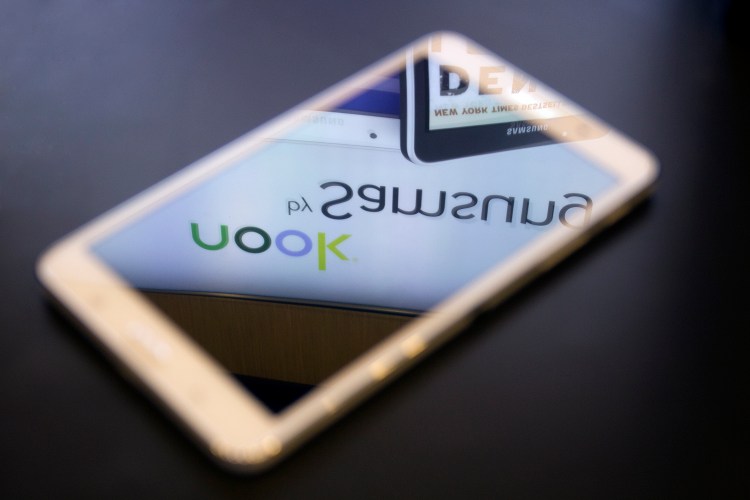Microsoft’s deal with Barnes & Noble is now kaput.
In 2012, Microsoft dropped $300M for a 17.6 percent stake in Barnes & Noble’s somewhat promising Nook business. Today, the companies announced in a filing with the SEC that Microsoft will sell back its stake for “$62,425,006.63 in cash and 2,737,290 shares of common stock.”
Barnes & Noble will pay over $100 million in total to buy back Microsoft’s Nook stake — approximately $123 million, according to Reuters.
Barnes & Noble detailed its rationale within its fiscal second quarter 2015 earnings report, explaining that “Barnes & Noble and Microsoft have agreed to terminate their commercial agreement including any associated obligations for international content acquisition and sale. Such termination will allow the Company to continue its rationalization of the NOOK Digital business and enhances Barnes & Noble’s operational and strategic flexibility. The termination also relieves Microsoft of any obligation to continue to fund support and other payments set forth in the commercial agreement between the partners.”
In other words, Microsoft is out and now Barnes & Noble has more flexibility to spin-off its Nook business — something it might do “by the end of August 2015,” Barnes & Noble says.
Microsoft parting ways with Barnes & Noble’s Nook Media isn’t at all surprising, given the Nook business’ losses, which are considerable. In the company’s Q2 earnings report, Barnes & Noble reported that the Nook segment (which includes digital content, devices, and Nook accessories) saw $64 million in revenue, down 41.3 percent from a year ago. More specifically, device sales were down 63 percent year-over-year, and digital content sales (a key factor, considering this is where Nook is supposed to make most of its money now) were down 21 percent compared to last year.
During today’s earnings call, Barnes & Noble attributed the massive year-over-year losses on spending more money to advertise the new Samsung-branded Nook tablets that debuted this summer, as well as higher patent litigation costs. (The company said it spent $6.3 million on user acquisition vs. $4.2 million in the previous quarter.)
Barnes & Noble also revealed that it wasn’t entirely happy with Nook sales from this past Black Friday holiday shopping weekend, which traditionally has been among the most lucrative shopping periods of the entire year.
“Black Friday sales weren’t quite up to our expectations … but no one is hitting the panic button,” Barnes & Noble head Michael Huseby said, adding that the company is hopeful sales will pick up steam throughout the holiday season.
But aside from the Nook business’ losses, it makes sense that Microsoft wouldn’t be interested in continuing its current relationship with the company. There was much speculation when Microsoft initially purchased a stake in Nook that the technology giant might eventually acquire Nook Media. The idea would be that Nook would give Microsoft inexpensive consumer tablets and e-readers to sell digital media content, and that would allow Microsoft proper to focus on producing high-end tablets like the Surface. So when Nook Media struck a deal to have Samsung start supplying hardware (aka Samsung Galaxy Nook tablets), Microsoft understandably found Nook far less appealing. On top of that, the Nook platform moved at a snail’s pace while trying to keep up with competition from Amazon’s Kindle Store.
But as previously mentioned, Microsoft isn’t entirely ending its relationship with Barnes & Noble. Should Barnes & Noble officially split Nook Media into a separate company, Microsoft will retain some shares but won’t be on the hook to provide the company with money for operating expenses.
VentureBeat's mission is to be a digital town square for technical decision-makers to gain knowledge about transformative enterprise technology and transact. Learn More

